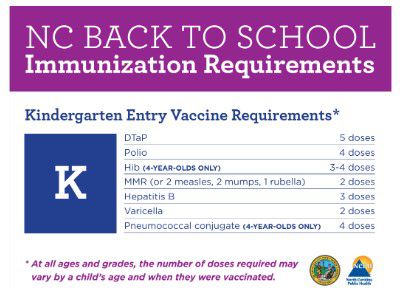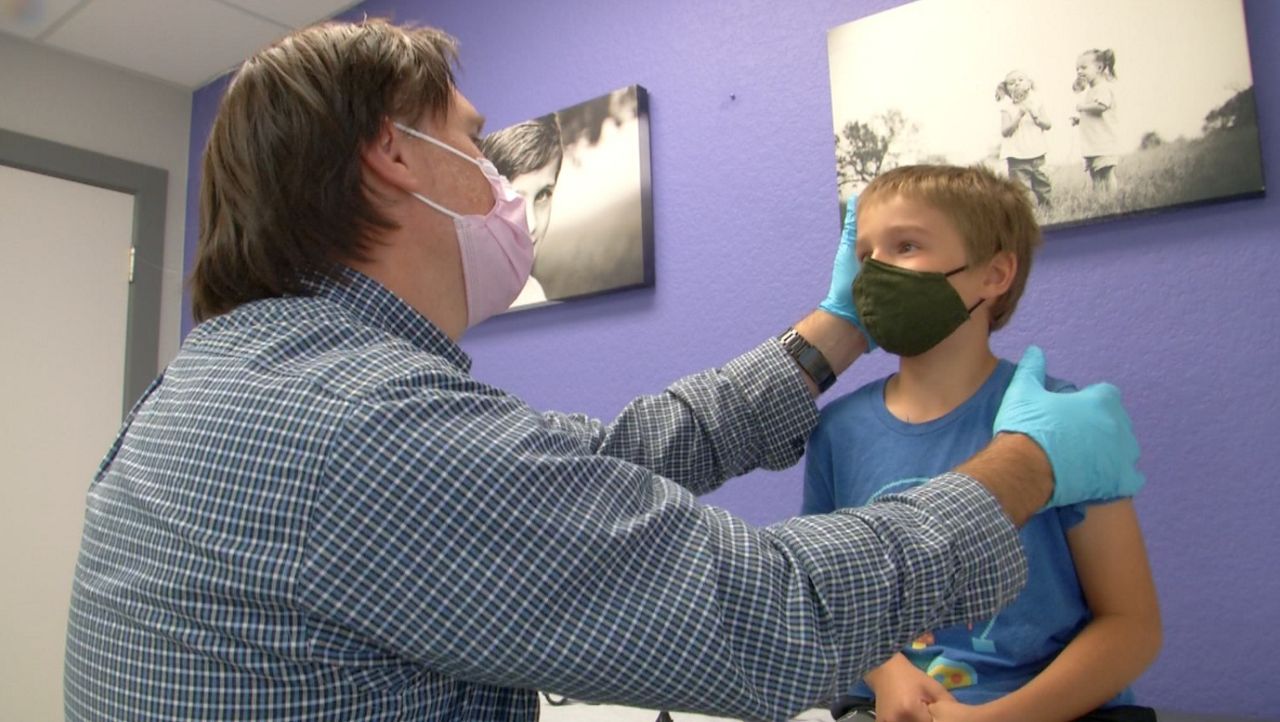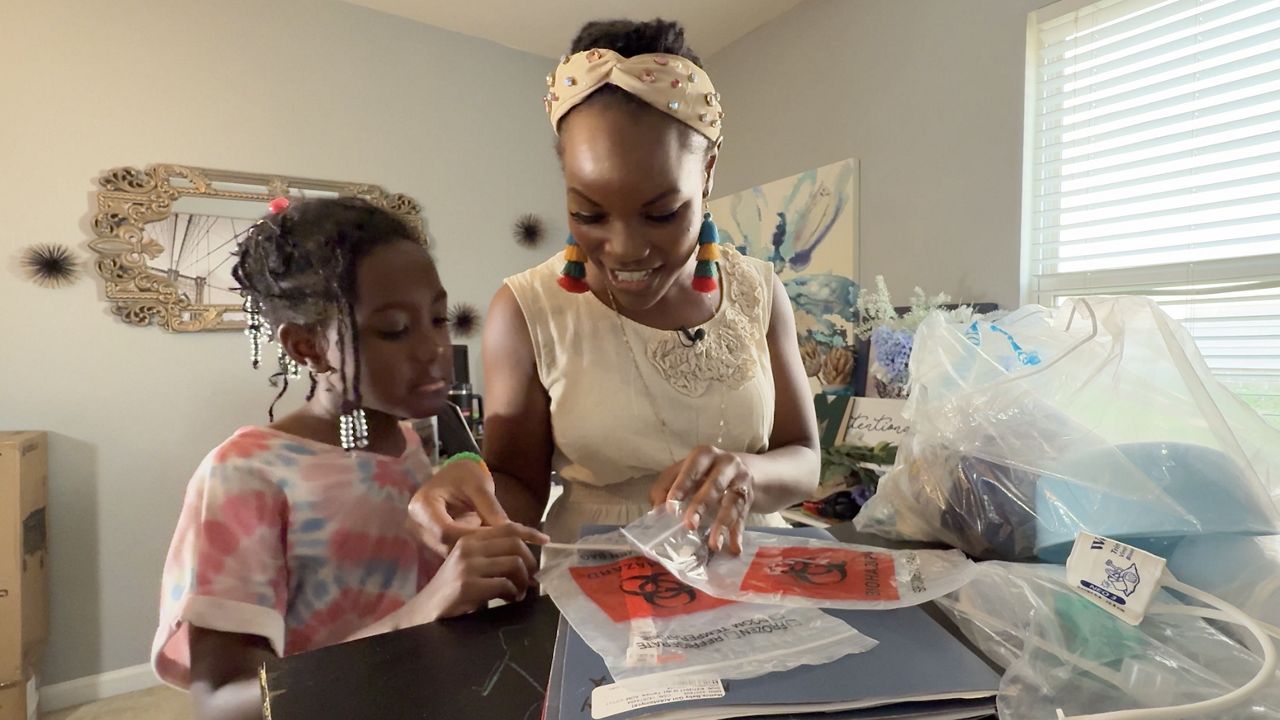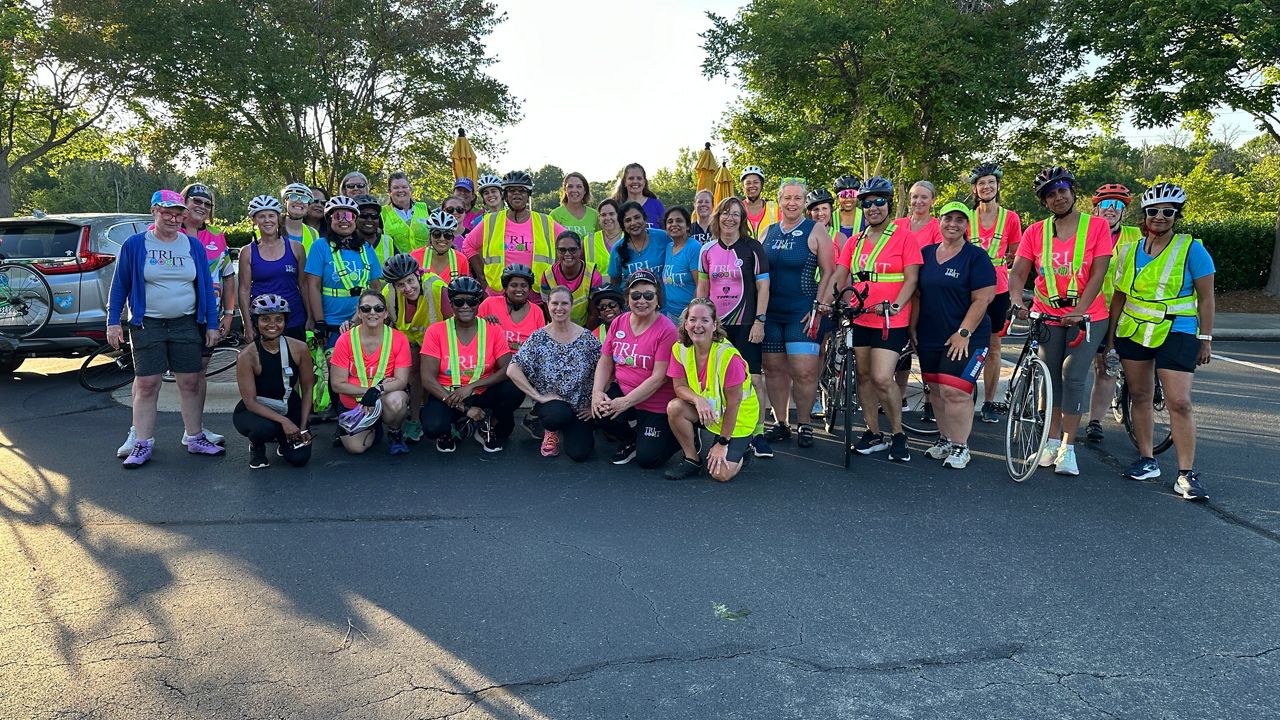A child in Mecklenburg County, North Carolina contracted the measles virus, according to the North Carolina Department for Health and Human Services. This is the first case of the virus reported in North Carolina since 2018, according to DHHS.
Health officials believe the child was exposed to measles when traveling out of the country.
"Fortunately, the parents kept the child at home after returning to North Carolina except for one medical visit, during which appropriate precautions were taken to avoid spreading the virus," DHHS said.
Measles is a highly contagious virus that spreads through the air when an infected person coughs or sneezes, according to public health officials. Measles can cause serious health complications, including pneumonia and encephalitis, DHHS said, especially in children younger than 5.
"You can get measles just by being in a room where a person with measles has been, even up to two hours after that person has left," DHHS said.
Health officials said the disease is on the rise in the U.S., which is reflective of an increase in global measles cases and a growing global threat from the disease.
"Most Mecklenburg County residents are vaccinated against measles and are not at high risk," said Mecklenburg County Public Health Director Dr. Raynard Washington. "This case further demonstrates the critical need for all families to ensure their kids are up to date with measles and other childhood immunizations."
Measles usually begins with a fever that lasts a couple of days and is followed by a cough, runny nose and conjunctivitis (pink eye). A rash typically forms on the face and upper neck and spreads down the back and trunk before extending to the arms, hands, legs and feet, according to health officials.
The rash usually fades after about five days. Health officials urge anyone who is sick to stay home and call ahead before seeking medical attention to prevent spreading the virus.
DHHS said measles vaccinations are important to protect the community, and children who are not traveling internationally should receive their first dose of MMR vaccine when they are 12 to 15 months old and their second dose at age 4 to 6.
"All U.S. residents older than age 6 months without evidence of immunity who are planning to travel internationally should receive MMR vaccine prior to departure," DHHS said.
Health officials reccommend the following for people traveling outside the United States:
- Infants aged 6 through 11 months should receive one dose of MMR vaccine before departure
- Children age 12 months or older should receive two doses of MMR vaccine, separated by at least 28 days
- Teenagers and adults without evidence of measles immunity should receive two doses of MMR vaccine separated by at least 28 days

"Measles is on the rise globally and in the U.S.," said State Health Director and NCDHHS Chief Medical Officer Dr. Elizabeth Cuervo-Tilson. "Parents, schools, early childhood education providers and health care providers should work to ensure everyone is up to date with their measles vaccinations."
The Centers for Disease Control and Prevention estimates 94% of North Carolina kindergarteners were up to date on the MMR vaccine in the 2022-2023 school year, compared to 93% nationally.
Visit the kindergarten immunization dashboard to see more information on vaccination rates by state, county and school level.
Families without health insurance can vaccinate their children at low or no cost through the Vaccines for Children program, which offers free vaccines to anyone age 19 and younger.











